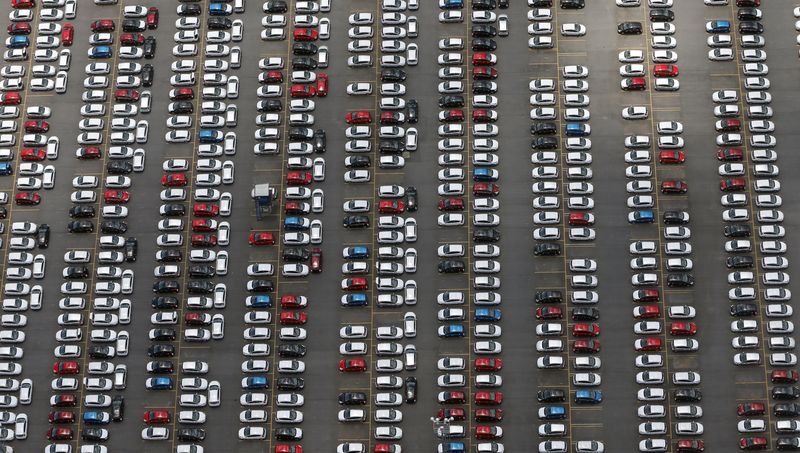Asia FX muted, dollar fragile as CPI data boosts Sept rate cut bets
Investing.com - Shares in European automotive stocks climbed on Wednesday, mirroring a jump in their peers in Asia, as a trade pact between the U.S. and Japan underpinned hopes for a similar deal with the European Union.
Milan-listed shares of Jeep-maker Stellantis (NYSE:STLA) rose, along with Germany’s Volkswagen (ETR:VOWG_p), Mercedes Benz (ETR:MBGn), BMW (ETR:BMWG) and Porsche. Renault (EPA:RENA) was also higher, despite posting no growth in second-quarter sales volume.
The increases came after steep advances in many Japanese car groups. Toyota (NYSE:TM) Motor (TYO:7203) led the rally with a 14% surge, while Honda (NYSE:HMC) Motor (TYO:7267) jumped over 11%. Nissan (TYO:7201) rallied roughly 8%, while Mazda (TYO:7261) surged nearly 17%.
South Korean peers strengthened too, with Hyundai (OTC:HYMTF) Motor (KS:005380) up 7.5% and Kia Corp (KS:000270) rising 8.5%, as investors speculated that Seoul may secure trade terms near to those made with Japan.
The stock moves came after President Donald Trump announced his administration had completed a “massive deal” with Japan, which will see the Asian country face a 15% tariff. Crucially, Japan’s all-important auto industry, which accounts for over a quarter of the country’s exports to the U.S., will see its levies set the same rate.
Trump added that Japan will invest $550 billion into the U.S., of which the U.S. will “receive 90% of the Profits.”
“Japan will open their Country to Trade including Cars and Trucks, Rice and certain other Agricultural Products, and other things. Japan will pay Reciprocal Tariffs to the United States of 15%,” he said in a social media post.
The deal -- one of the most significant of a series of preliminary trade pacts since Trump first unveiled his heightened global levies in April -- comes after reports said Japan’s top trade negotiator, Ryosei Akazawa, met Trump in the White House on Tuesday.
While the 15% tariff is lower than the 25% initially outlined by Trump, it still goes against Tokyo’s earlier demands that Japan be exempt from all U.S. tariffs.
"The trade deal with the U.S. announced today removes a key downside risk to Japan’s economy," analsyts at Capital Economics said in a note to clients. "We estimate that the net effect of today’s announcement will be a reduction in the average tariff rate faced by Japanese exporters in the US of around one percentage point."
Beyond Japan, the direction of negotiations with other major U.S. trading partners, such as the European Union and India, remains unclear with an August 1 deadline for Trump’s elevated "reciprocal" tariffs to take effect fast approaching.
Still, "success in obtaining some agreement at this time hence should have a substantial effect in mitigating concerns about future uncertainty," analysts at Jefferies said in a note.
